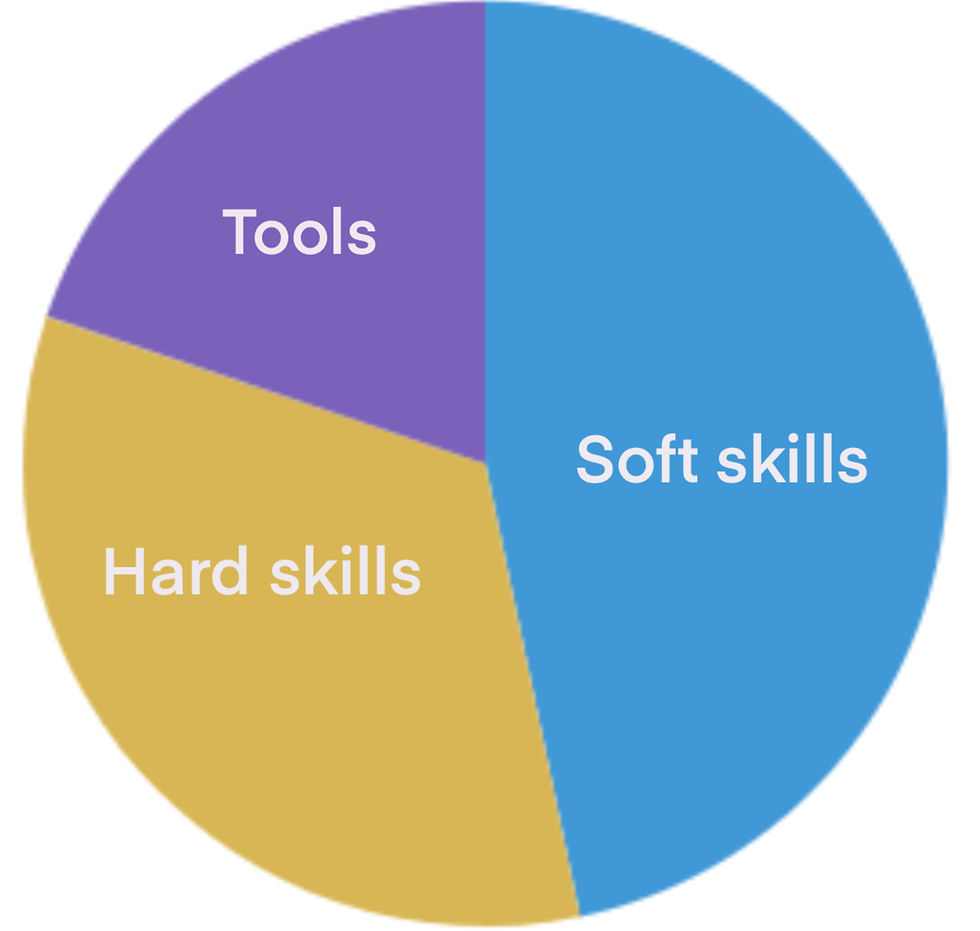Knowledge Portfolio Series: Introduction
- Chief Noise Maker
- Apr 12, 2021
- 4 min read
Occasionally, I enjoy a good read. I'm very lucky because I live in the world of a very diverse field. There are many people who live in a field that is purely technical, purely manual, or purely human psychology. Imagine the Coal Miner who has gone to work everyday engaging in what would probably be considered very narrowly focused work. Similar to an assembly line worker. The understanding of human psychology likely doesn't play a major role in their work. As for people like Marketers, they traffic in the world of human psychology, but rarely are they technical enough to automate large amounts of their work. These types of solutions get sold to them for big bucks instead. Being in a field that intersects these things actually allows for major benefits in various parts of my life. In this mini-blog series, I want to drill into building a Knowledge Portfolio. What is a Knowledge Portfolio? I'm so glad you asked! #askandansweryourownquestions #thegeniusofdrcurry

In the book "The Pragmatic Programmer", we are introduced to the concept of the Knowledge Portfolio. The choice of words is quite effective, since it pays homage to the investment community. This is a great analogy for describing knowledge. As the authors mention, knowledge is a decaying asset. Yet knowledge can also compound! The acquisition of assets in an investment portfolio carries multiple similarities to acquisition of knowledge in a knowledge portfolio.
Let's go back to those coal miners. For those that have been in the industry from teenager to 60's, they may find the current state of the industry quite concerning. Their knowledge has seemingly been without any decay, but knowledge decay doesn't have to be quick. This decay varies widely by industry, but I can guarantee there will be a day when you wake up and realize the knowledge you hold is worth far less, and people are less willing to pay you for it. This occurrence is surprisingly fast in the technology industry. Nassim Taleb describes an interesting state of reality. Many things follow what is known as a power law distribution. Let's give an example. Best selling books are a classic example. We can count the number of books that remain on the best seller list by number of weeks. This doesn't take much imagination. Most books stay on the best seller list for 1 week. A little less stay on for 2 weeks. Even fewer stay on for 3 weeks, and so forth. Eventually, you get down to the books that have been the best sellers of all time. This list is very very small. Think in terms of your holy books as being in the rarified group. Many books come and go, but these books seem to have real staying power. However, they may fall from grace some day. #religiouspunsforthewin I know such a thing would seem impossible, yet it can't be ruled out. This reality also makes it obvious that the first things you should probably learn are things that have staying power, but you can't stop there. Likewise, technology follows this power law distribution. Most technology will not stay around for a long time. As such, I find developers that become obsessed with a particular language or piece of technology are the equivalent of a coal miner with their head in the ground. I've personally programmed across 5 languages in my short career, and I've even started to see the next language emerging in my industry. As such, I can't escape the reality that learning is the biggest skill for any persons career. If you stop learning, your knowledge is decaying. Being eaten away by the change that is occurring in the world. Similar to keeping your money in a saving account. Every year, inflation eats away at the value of your money.
How about compounding? Knowledge compounds you say? Absolutely! It is also very abstract in many situations. For instance, I've had to build products for users. Learning to empathize with my customers has lead me to read more about human psychology. This in turn has actually had a major impact on my personal relationships as I learn how to better communicate with people. My knowledge doesn't remain only useful for one area of my life. It provides returns all over the place. Once I learned about the principle of Don't Repeat Yourself (DRY code) in software engineering, I implemented the same concept in my investment portfolio, my relationship with friends, and coaching mentees. The more you learn from various fields, the more likely you are to "innovate". How do you innovate in a world where there is nothing new under the sun? Simple, realize that all this existing knowledge is highly siloed. Most of my biggest innovations have come from merging concepts from outside of the field I primarily work in. I get called a genius, but I'm just well read. #innovatorsreadnonstop And I would be remise if I didn't mention one of my favorite things about learning. The more I learn the easier learning becomes. Honestly, you can often build mental maps of higher level concepts. All too often when you start reading something new you will be able to understand it as some combination of previously learned concepts. So learning concepts is kind of like building a network of concepts. The more items in a network like people on Facebook, the more value the network has, and the more likely people will join your network. Note, lots of knowledge can be onboarded easily via a really great analogy. You do have to be careful about the analogy you choose to help you understand a concept, but this is honestly a great way to learn and problem solve as well.
In the following posts, we will explore various parts of Building the Knowledge Portfolio and some of my opinions on how to optimize your portfolio. #igot99problemsbutajobaintone



Comments